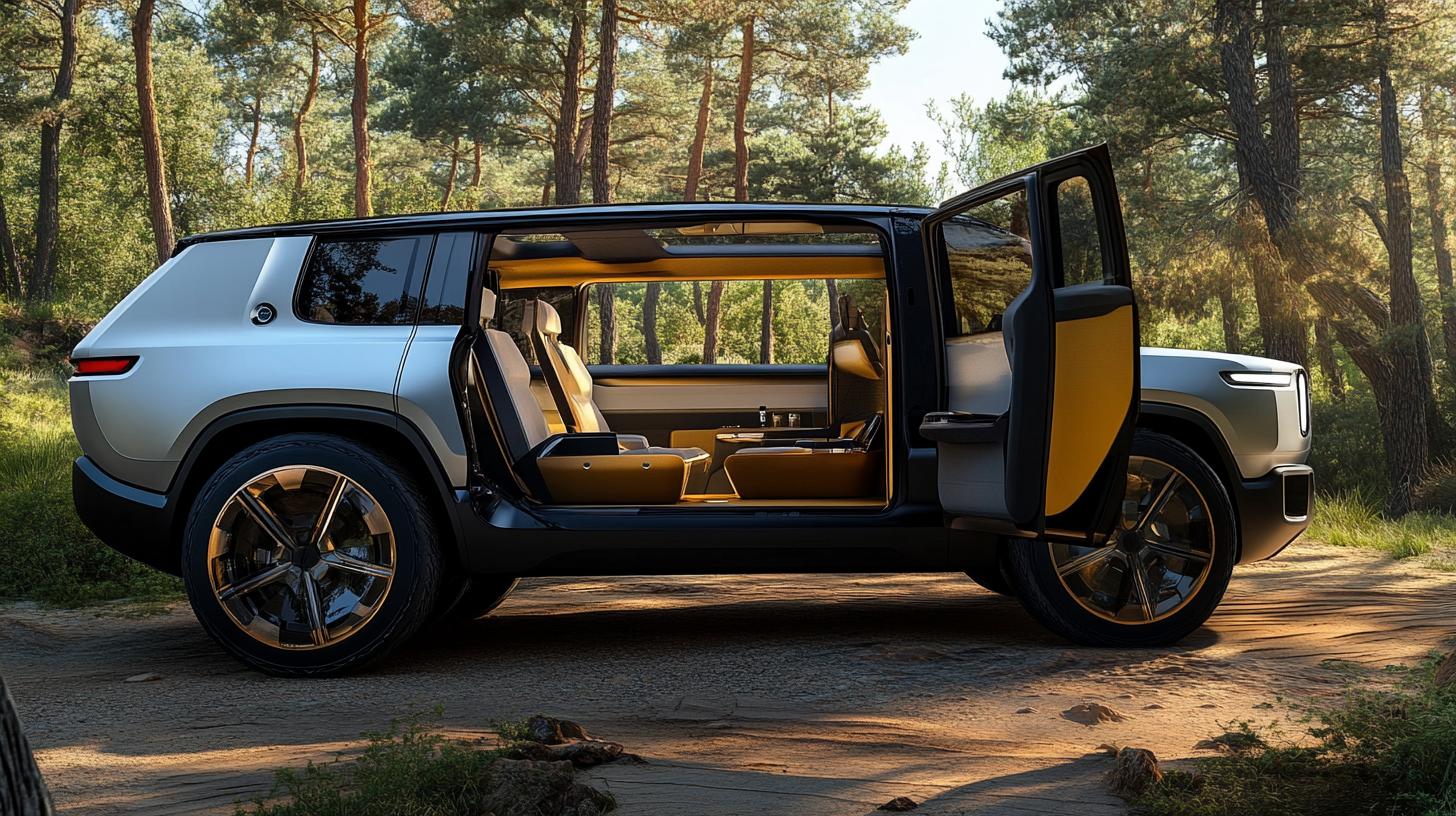In a significant move for the electric vehicle industry, LG Energy Solution’s Arizona branch has struck a pivotal deal with a leading U.S. electric vehicle manufacturer, Rivian. This contract ensures the supply of cylindrical batteries over a span of five years, offering a whopping total capacity of 67 gigawatt-hours (GWh).
These advanced EV batteries are set to be produced at LGES’s state-of-the-art facility in Arizona and will energize Rivian’s much-anticipated R2 model, specifically developed for the North American clientele. The partnership is part of a wider industry shift toward employing larger battery cells, a movement pioneered by industry leaders like Tesla, and now adopted by car manufacturers including Mercedes. These innovative larger cells boast an increased driving range coupled with fewer cells required per battery pack.
The 4695 cylindrical battery from LG Energy Solution is distinguished by its dimensions of 46mm in diameter and 95mm in height. With a remarkable sixfold increase in capacity over the current 2170 models, these batteries promise elevated energy density, improved space utilization, and superior safety features. They will be transported from Arizona to Rivian’s assembly line in Illinois.
This strategic alliance underscores LG Energy Solution’s ambitious expansion across the U.S., leveraging the incentives provided by the Inflation Reduction Act (IRA) to boost local production. With their rich experience spanning over two decades and a vast patent repository, LG Energy Solution is poised to capture the forefront of the thriving EV battery domain. Rivian, despite facing some production challenges, produced over 13,000 vehicles recently and aims to ramp up output, ensuring more eco-friendly vehicles hit the roads timely.
Is the EV Revolution Truly Sustainable? Uncovering the Impacts of Battery Production on Our World
Introduction
As electric vehicles (EVs) continue to gain traction globally, the partnerships that fuel their creation are pivotal. The latest collaboration between LG Energy Solution’s Arizona branch and Rivian is creating considerable ripples across the industry. Beyond revamping the EV landscape, it’s crucial to delve into the wider implications of this burgeoning deal and the battery production ecosystem.
The Unseen Dimensions of Battery Production
While the deal signifies technological advancement, it also raises questions about environmental and socio-economic repercussions. Large-scale battery production, vital for the electrification of transport, necessitates intensive mining for raw materials like lithium, cobalt, and nickel. These materials are predominantly sourced from countries with pressing socio-economic challenges, where mining operations can adversely affect local communities by causing displacement, water pollution, and health issues.
Environmental and Economic Impact on Communities
The surge in battery production demands a massive extraction of natural resources, posing environmental risks. At the same time, it can bolster local economies by creating job opportunities in mining sectors. For instance, countries like the Democratic Republic of Congo, a leading cobalt supplier, see mining as a double-edged sword, providing economic benefits while also posing ethical dilemmas related to child labor and poor safety standards.
Innovation vs. Sustainability: A Delicate Balance
As bigger battery cells like the 4695 model promise higher energy densities and improved safety, they also bring concerns about the sustainability of sourcing and recycling these materials. Are we prepared to manage the long-term waste and environmental implications of battery disposal? While such innovations boost EV performance with fewer battery cells, they also necessitate a robust recycling infrastructure to mitigate ecological impacts.
Advantages and Disadvantages of the Transition
Advantages:
– Efficiency and Range: Larger battery cells deliver better driving ranges, reducing “range anxiety” among EV users.
– Economic Growth: Investment in battery production facilities not only reduces reliance on foreign imports but also enhances local economies.
Disadvantages:
– Environmental Concerns: Intense mining and inadequate recycling pose significant environmental threats.
– Supply Chain Vulnerabilities: Dependence on a concentrated supply chain for raw materials can lead to geopolitical tensions and market volatilities.
Questions Worth Pondering
– Are technological advancements in battery production justifying the environmental costs incurred?
– How can stakeholders ensure ethical practices in mineral extraction for battery manufacturing?
– What policies can be adopted to accelerate the development of a sustainable recycling system for EV batteries?
Conclusion
As we push towards an electric future, balancing innovation with sustainability is imperative. The EV revolution is heralding changes far beyond the automotive industry, impacting global economics, environmental policies, and societal norms. Understanding these ramifications is key for consumers and policymakers alike, ensuring the transition to electric is not only efficient but truly sustainable.
For further insights on electric vehicles, sustainability, and battery technology, visit Rivian and LG Energy Solution.







